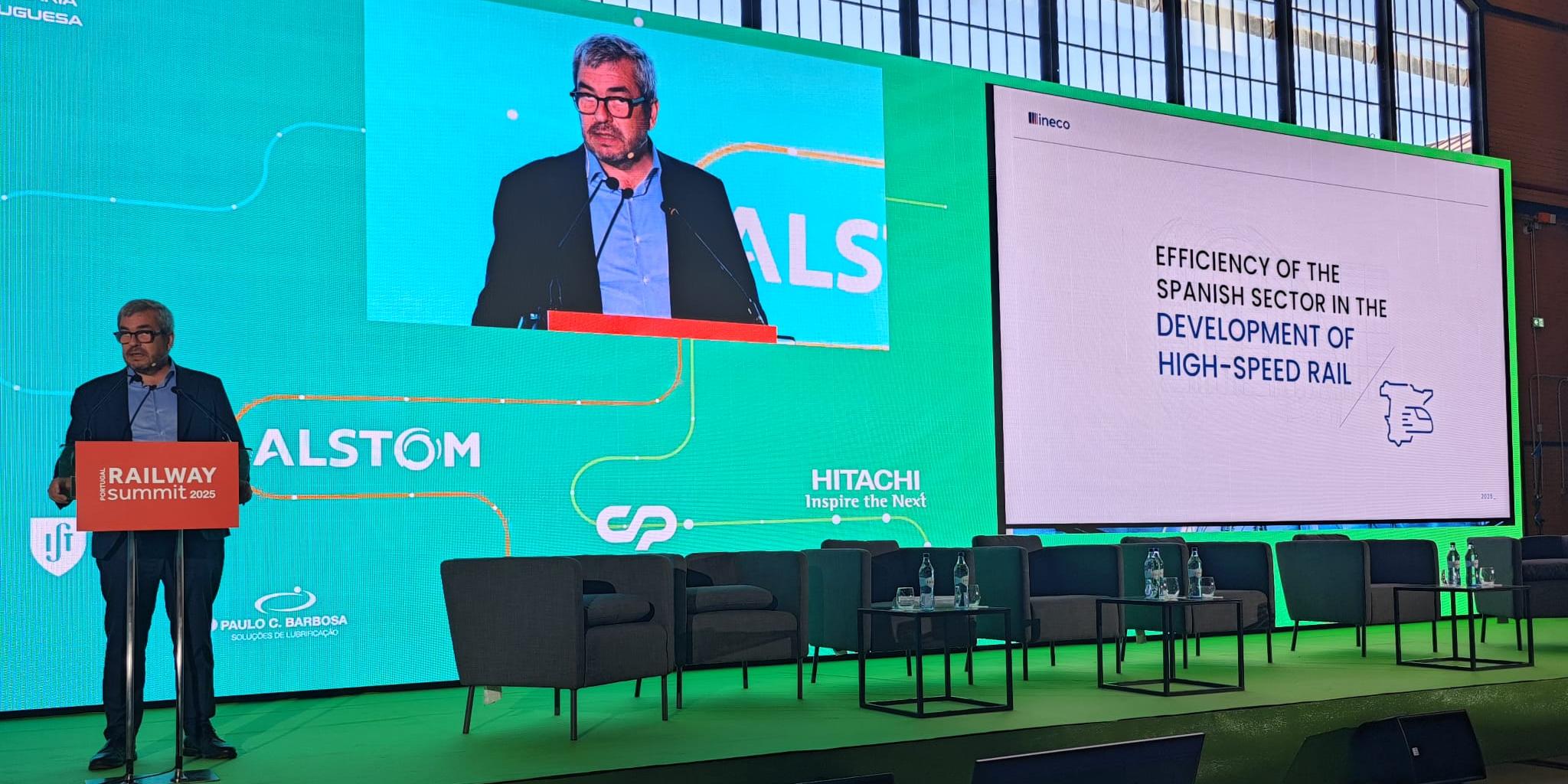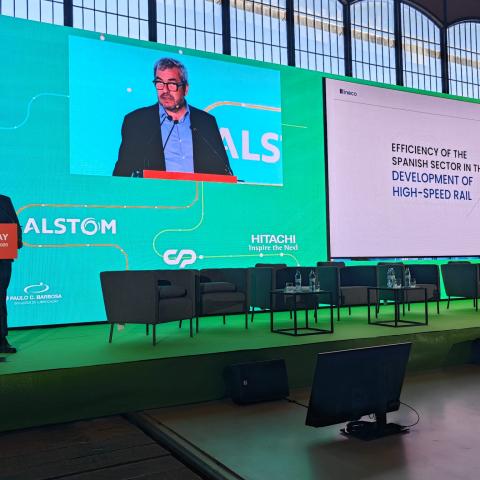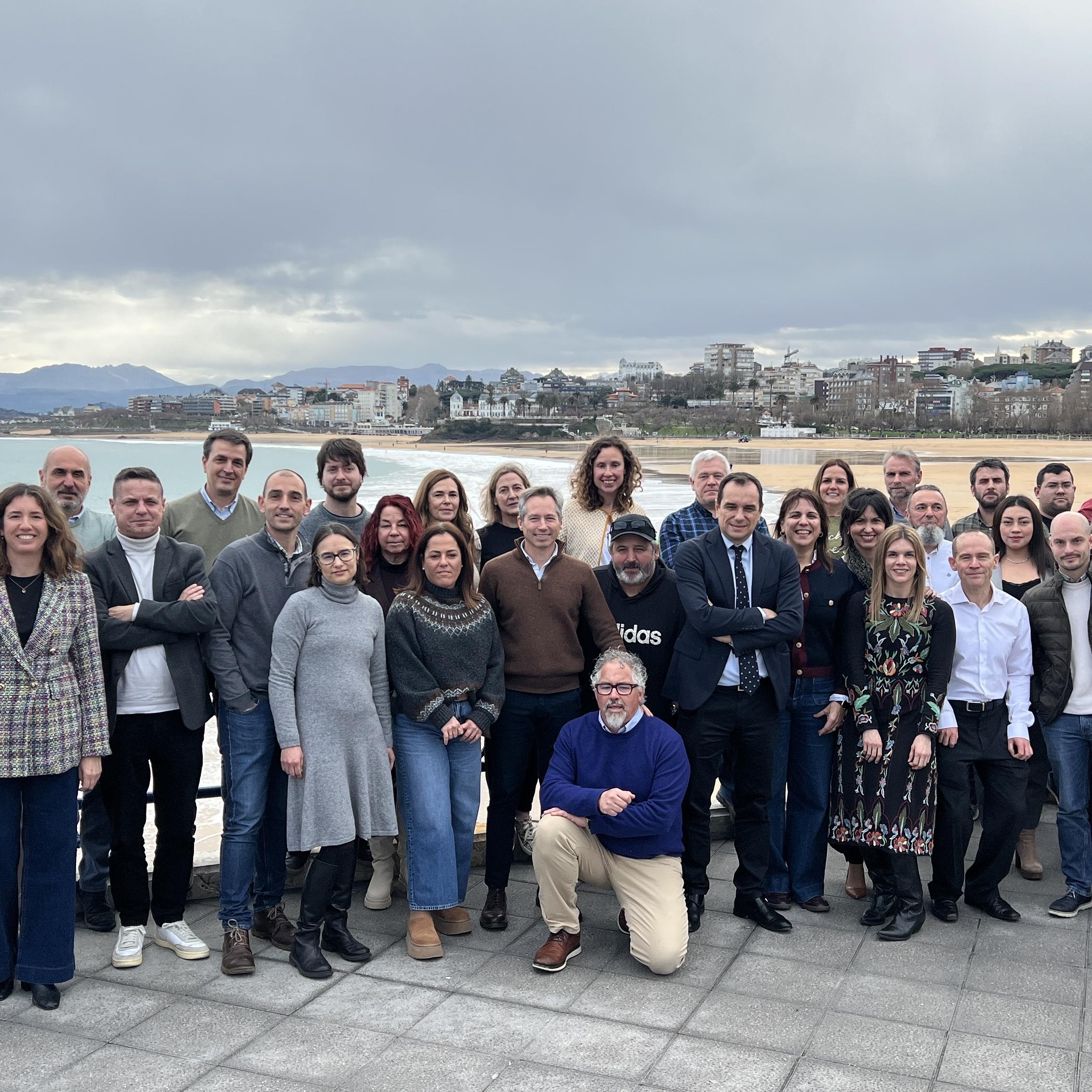
Javier Anibarro, expert in Transport Economics and Policies and coordinator of the presented report
Ineco has been a key player in the 6 th edition of the Portugal Railway Summit, the main railway forum of the neighbouring country, where it has shared the key aspects of the Spanish high-speed model, internationally recognised for its efficiency.
The meeting, held at a strategic moment for Portugal (in the midst of launching tenders to develop its high-speed network) featured the prominent participation of Ineco in the event's inaugural round table. Javier Anibarro, expert in Economics and Transport Policies and coordinator of the presented report, has outlined the factors that have positioned Spain as a world leader in railway efficiency.
A model to inspire Portugal
Under the title "Efficiency of the Spanish Sector in the Development of High-Speed Rail", the report prepared by Ineco and published in November 2023 highlights the Spanish model, characterised by an excellent quality-cost ratio. Spain has the most extensive high-speed rail network in the European Union, built at an average cost of 17.7 million euros per kilometre, less than half that of other comparable European countries.
In addition to analysing construction costs, the report delves into the maintenance and operation of the network, highlighting how, despite its size, Spain is at or below the EU average in maintenance costs. During his speech, Anibarro outlined the key factors behind the efficiency of the Spanish high-speed rail model, including lower structural costs driven by economic, institutional, and technological factors. These include a political and social consensus that has maintained stable investment levels; integrated and structured development management through medium-sized contracts that promote competition; a standardized and streamlined design that simplifies technical execution; a strong commitment to developing proprietary technology that has generated exportable knowledge; active involvement of both private and public sectors, creating a high-value chain that respects their roles and advantages; and a shared culture around high-speed rail, conceived as a true national project.
The Spanish experience offers a consolidated model of interoperability, efficiency, and collaboration between administrations and the private sector, which is serving as a reference in other countries including Portugal.








